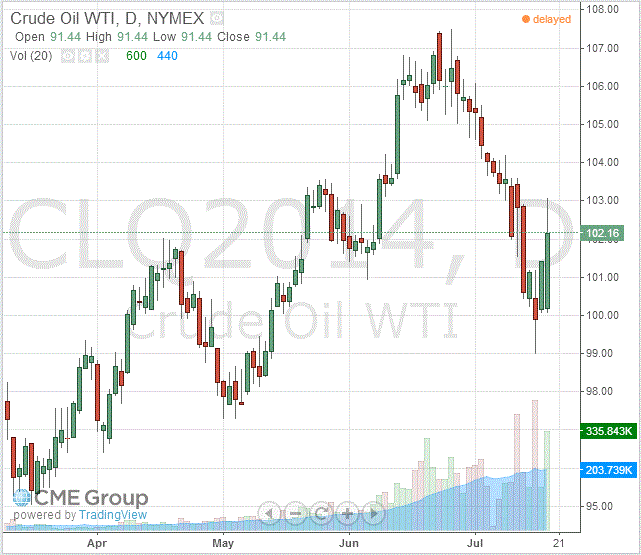- Oil: an overview of the market situation
Market news
Oil: an overview of the market situation
Cost of oil futures rose today that due to a drop in U.S. oil inventories and extended introduction of sanctions against Russia Washington and Brussels. Experts do not rule out that the U.S. and EU sanctions will create an additional risk premium in world oil and gas markets, but do not predict a significant increase in prices.
"The sharp decline in growth stocks explains WTI, - the analyst said Jefferies Bache Ltd. Christopher Bellew. - Russian sanctions so far, do not seem too worried about the market. "Recall that oil inventories in the U.S. fell last week to 7.53 million barrels to 375.04 million barrels, while experts expected a decline of only 2.75 million barrels. Meanwhile, gasoline inventories increased by 171 thousand barrels to predict when a jump at 610 thousand barrels.
On the dynamics of trade also affects the political situation in Libya and Iraq. Experts point out that in the next few weeks the direction of movement of oil prices will primarily determine the situation of oil supplies from Libya. It will take time before oil terminals reach full operating capacity, so that shipments from Libya in the short term is unlikely to grow significantly, analysts say. According to Libya's National Oil Corporation, now produced 550 thousand barrels per day.
Support prices also continue to yesterday's data on China, who reported a stronger-than-expected GDP growth in the second quarter - by 7.5 percent.
Market participants also drew attention to today's U.S. data. As the report showed Philadelphia Fed in July PMI rose, reaching at this level of 23.9 points compared to 17.8 points in June. It is worth noting that many economists had expected a fall of the index to the level of 15.6.
Cost of the August futures on U.S. light crude oil WTI (Light Sweet Crude Oil) rose to $ 102.16 per barrel on the New York Mercantile Exchange (NYMEX).
August futures price for North Sea Brent crude oil mixture fell $ 1.78 to $ 107.67 a barrel on the London exchange ICE Futures Europe.
